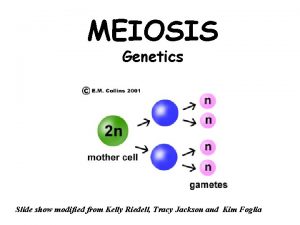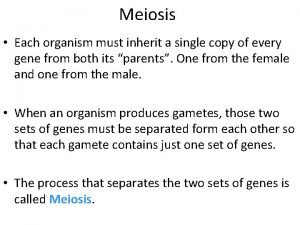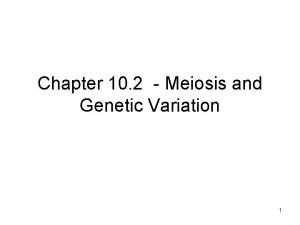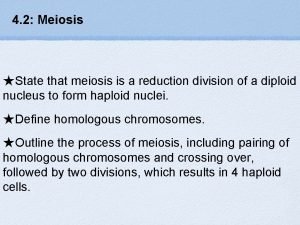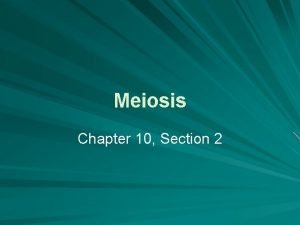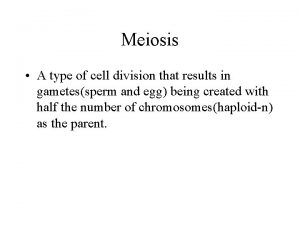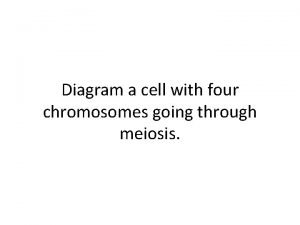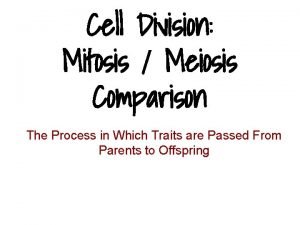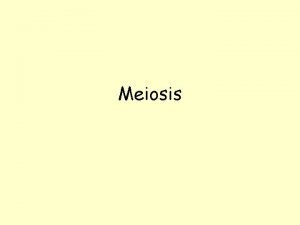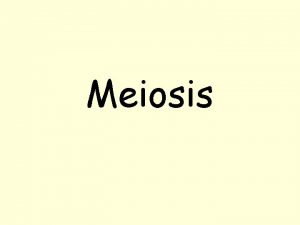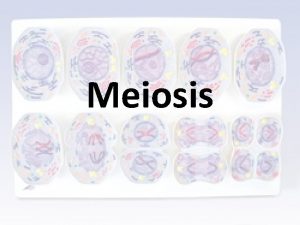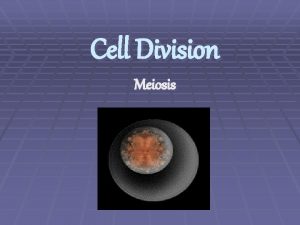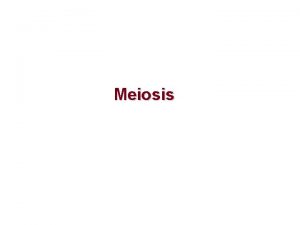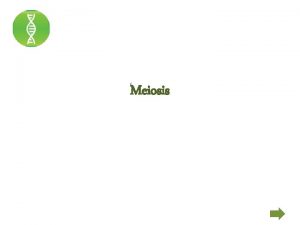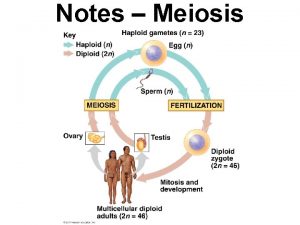Meiosis Meiosis Meiosis is a process of cell









- Slides: 9

Meiosis

Meiosis • Meiosis is a process of cell division that reduces the number of chromosomes in the new cells to half the number in the parent cell • Meiosis forms haploid cells. • Haploid cells are gametes (eggs and sperm). • Meiosis differs from mitosis in that: • Mitosis makes 2 diploid cells. • Meiosis makes 4 haploid cells.

Meiosis • Meiosis have 2 stages: meiosis I and meiosis II • Each stage of meiosis follows the phases of mitosis (P-MAT). • Meiosis I: Prophase I, Metaphase I, Anaphase I, Telophase I. • Meiosis II: Prophase II, Metaphase II, Anaphase II, Telophase II. • The difference: there is NO interphase between meiosis I and II! • Thus, the DNA is not copied you only end up with ONE set of chromosomes.


Prophase I • Synapsis occurs - homologous chromosomes pair up • Synapsis DOES NOT occur during mitosis • During synapsis, as the homologous chromosomes pair up, they begin to twist around each other • As this happens, portions of the chromatids may break off and attach to nearby chromatids • This process is called crossing over • The result of crossing over is a new chromatid with a new mixture of genetic material which can lead to new genes and genetic variation.


Where does it happen? • Remember, a gamete is a haploid, reproductive cell • It combines with another haploid gamete to create a diploid (zygote) • Only cells that divide by meiosis produce gametes in reproductive organs • In humans, meiosis occurs in the testes and the ovaries. • Spermatogenesis: Process by which sperm cells are produced. • Occurs in the testes • Oogenesis: Process that produces mature egg cells. • Occurs in the ovaries


Sexual Reproduction • Sexual Reproduction is the production of offspring from meiosis and the joining of a sperm & an egg • Offspring genetically different from parents • You have one haploid cell (sperm) with its own set of 23 chromosomes combining with another haploid cell (egg) with its own set of 23 chromosomes. • Safe bet that genes are combined in new ways (except identical twins) • It’s an evolutionary advantage because it allows variety, which can help organisms adapt
